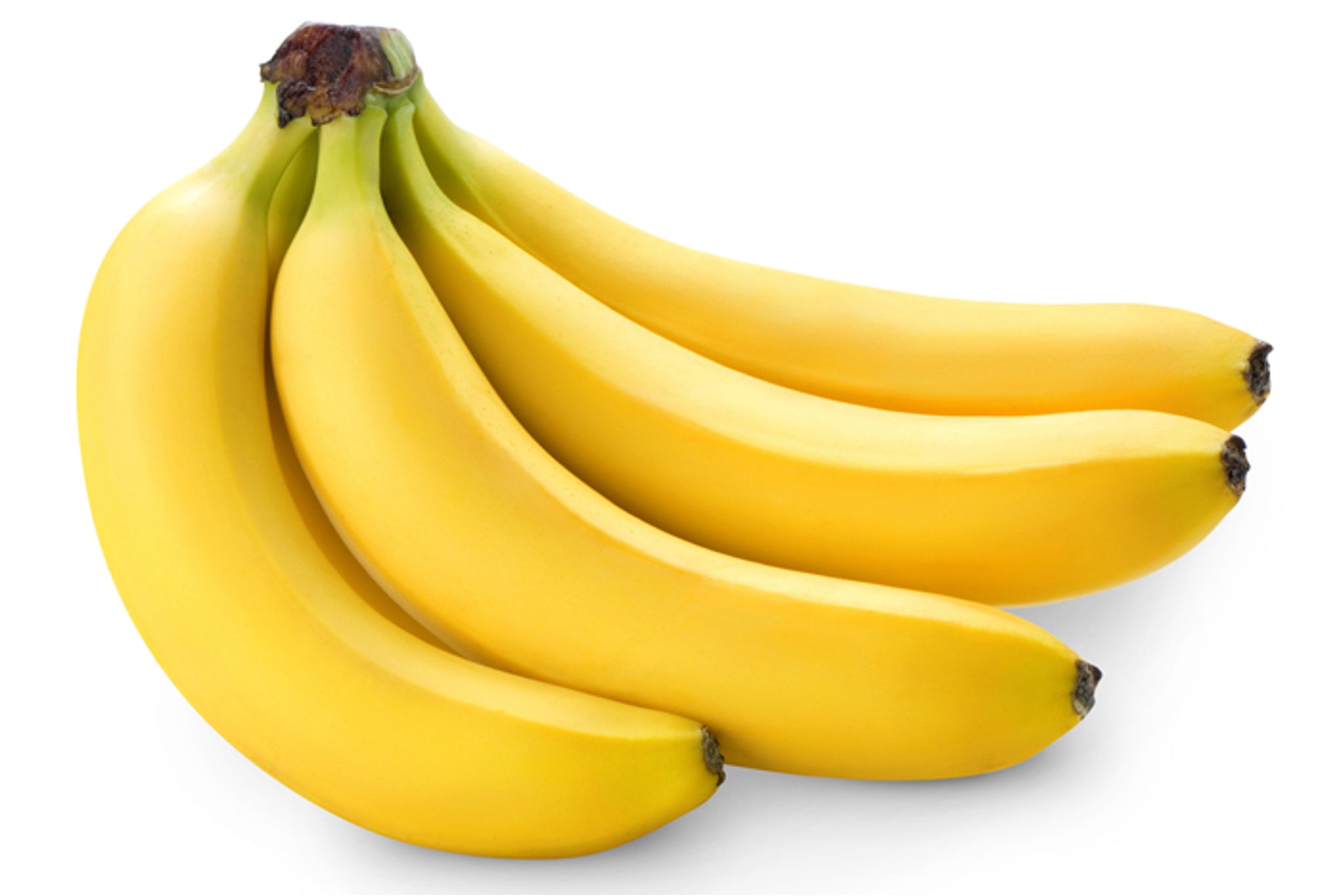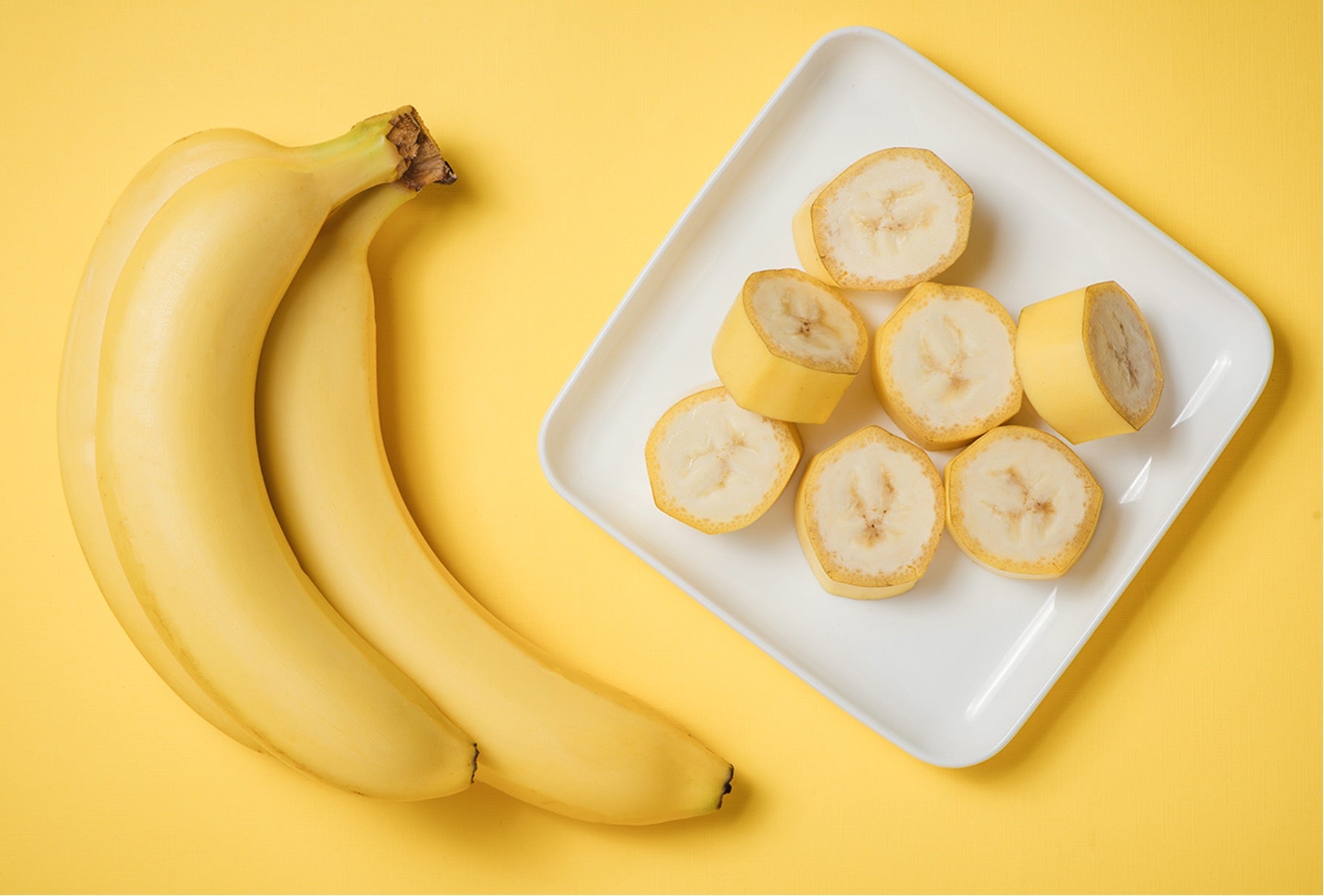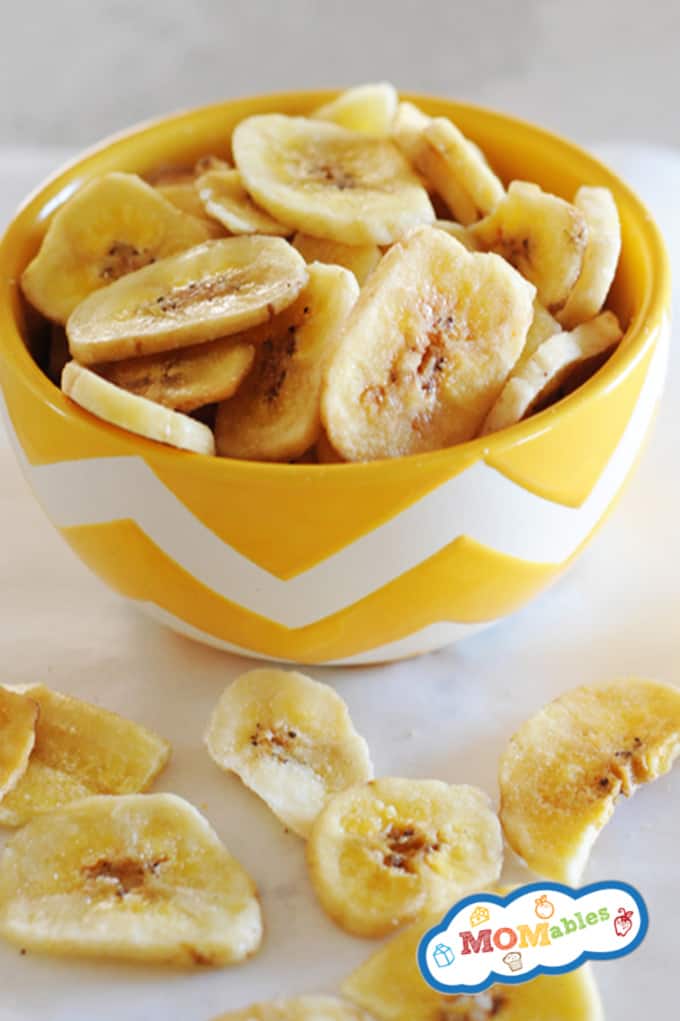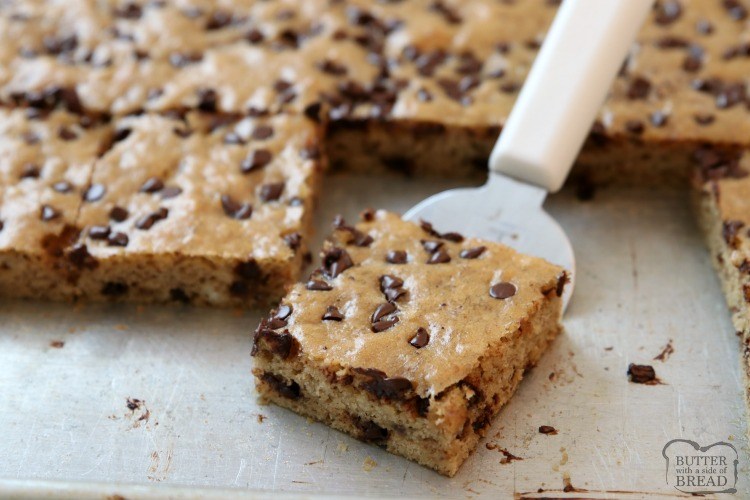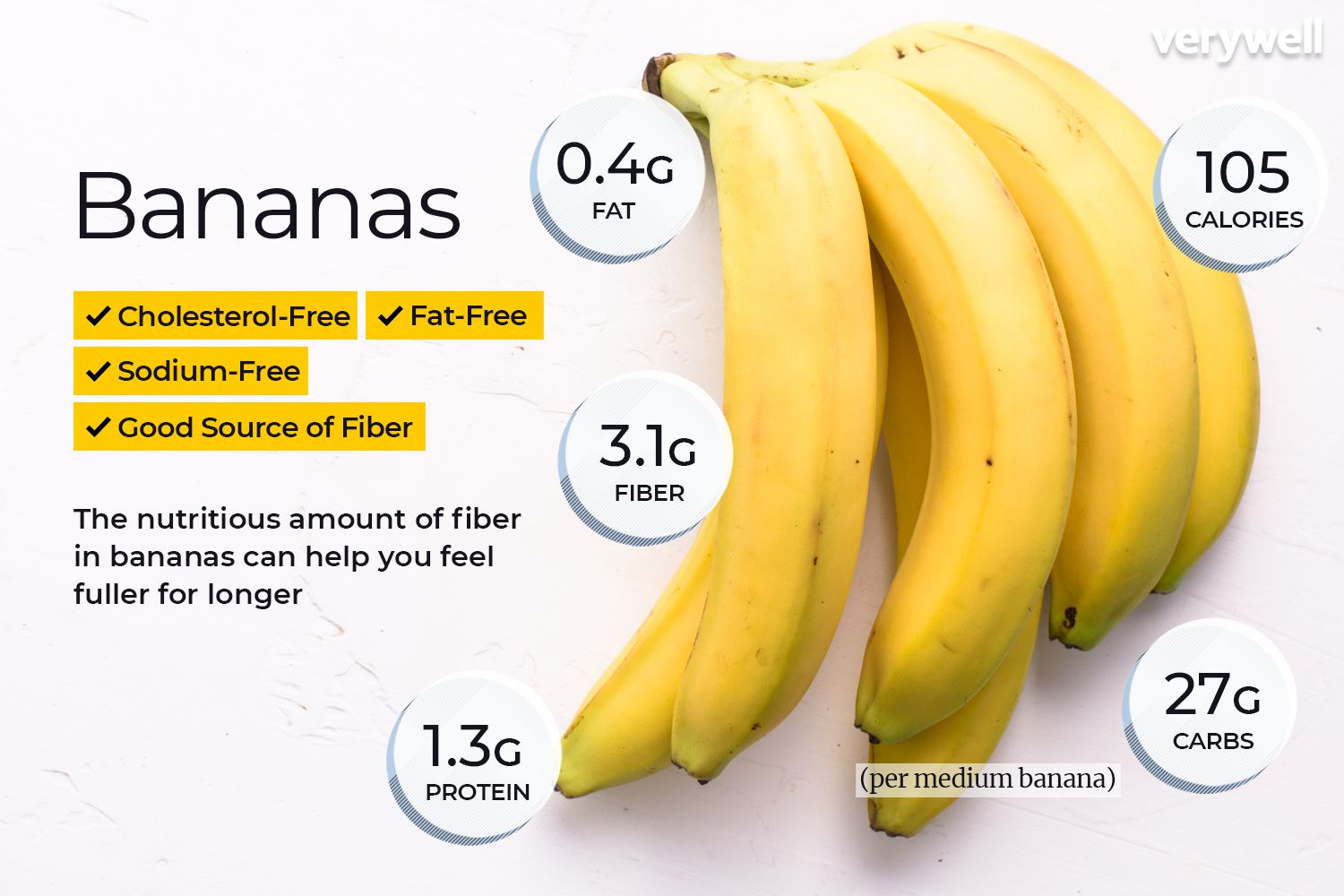Bananas
- Product Weight: 454 g
- Category: Fresh Fruits & Vegetables, Grocery & Gourmet Foods, Out of Stock, Vegetables
Bananas are extremely healthy and delicious.
They contain several essential nutrients and provide benefits for digestion, heart health and weight loss.
Aside from being very nutritious, they are also a highly convenient snack food.
Bananas are among the world’s most popular fruits.
Native to Southeast Asia, they are now grown in many warm parts of the world.
Bananas vary in color, size and shape.
The most common type is the Cavendish, which is a type of dessert banana. Green when unripe, it yellows as it matures.
Bananas contain a fair amount of fiber, as well as several antioxidants. One medium-sized banana (118 grams) also boasts (1, 2Trusted Source, 3Trusted Source):
- Potassium: 9% of the RDI
- Vitamin B6: 33% of the RDI
- Vitamin C: 11% of the RDI
- Magnesium: 8% of the RDI
- Copper: 10% of the RDI
- Manganese: 14% of the RDI
- Net carbs: 24 grams
- Fiber: 3.1 grams
- Protein: 1.3 grams
- Fat: 0.4 grams
Each banana has only about 105 calories and consists almost exclusively of water and carbs. Bananas hold very little protein and almost no fat.
The carbs in green, unripe bananas consist mostly of starch and resistant starch, but as the banana ripens, the starch turns into sugar (glucose, fructose and sucrose).
SUMMARY
Bananas are rich in fiber, antioxidants and several nutrients. A medium-sized banana has about 105 calories.
Bananas are rich in pectin, a type of fiber that gives the flesh its spongy structural form (4).
Unripe bananas contain resistant starch, which acts like soluble fiber and escapes digestion.
Both pectin and resistant starch may moderate blood sugar levels after meals and reduce appetite by slowing the emptying of your stomach (5Trusted Source, 6Trusted Source, 7Trusted Source).
Furthermore, bananas also rank low to medium on the glycemic index (GI), which is a measure — from 0–100 — of how quickly foods increase blood sugar levels.
The GI value of unripe bananas is about 30, while ripe bananas rank at about 60. The average value of all bananas is 51 (8, 9Trusted Source).
This means that bananas should not cause major spikes in blood sugar levels in healthy individuals.
However, this may not apply to people with type 2 diabetes, who should probably avoid eating a lot of well-ripened bananas — and monitor their blood sugar carefully if they do.
SUMMARY
Bananas can help moderate blood sugar levels after meals and may reduce appetite by slowing stomach emptying.
Bananas are extremely healthy and delicious.
They contain several essential nutrients and provide benefits for digestion, heart health and weight loss.
Aside from being very nutritious, they are also a highly convenient snack food.
1. Bananas Contain Many Important Nutrients
Bananas are among the world’s most popular fruits.
Native to Southeast Asia, they are now grown in many warm parts of the world.
Bananas vary in color, size and shape.
The most common type is the Cavendish, which is a type of dessert banana. Green when unripe, it yellows as it matures.
Bananas contain a fair amount of fiber, as well as several antioxidants. One medium-sized banana (118 grams) also boasts (1, 2Trusted Source, 3Trusted Source):
- Potassium: 9% of the RDI
- Vitamin B6: 33% of the RDI
- Vitamin C: 11% of the RDI
- Magnesium: 8% of the RDI
- Copper: 10% of the RDI
- Manganese: 14% of the RDI
- Net carbs: 24 grams
- Fiber: 3.1 grams
- Protein: 1.3 grams
- Fat: 0.4 grams
Each banana has only about 105 calories and consists almost exclusively of water and carbs. Bananas hold very little protein and almost no fat.
The carbs in green, unripe bananas consist mostly of starch and resistant starch, but as the banana ripens, the starch turns into sugar (glucose, fructose and sucrose).
SUMMARY
Bananas are rich in fiber, antioxidants and several nutrients. A medium-sized banana has about 105 calories.
2. Bananas Contain Nutrients That Moderate Blood Sugar LevelsBananas are rich in pectin, a type of fiber that gives the flesh its spongy structural form (4).
Unripe bananas contain resistant starch, which acts like soluble fiber and escapes digestion.
Both pectin and resistant starch may moderate blood sugar levels after meals and reduce appetite by slowing the emptying of your stomach (5Trusted Source, 6Trusted Source, 7Trusted Source).
Furthermore, bananas also rank low to medium on the glycemic index (GI), which is a measure — from 0–100 — of how quickly foods increase blood sugar levels.
The GI value of unripe bananas is about 30, while ripe bananas rank at about 60. The average value of all bananas is 51 (8, 9Trusted Source).
This means that bananas should not cause major spikes in blood sugar levels in healthy individuals.
However, this may not apply to people with type 2 diabetes, who should probably avoid eating a lot of well-ripened bananas — and monitor their blood sugar carefully if they do.
SUMMARY
Bananas can help moderate blood sugar levels after meals and may reduce appetite by slowing stomach emptying.



